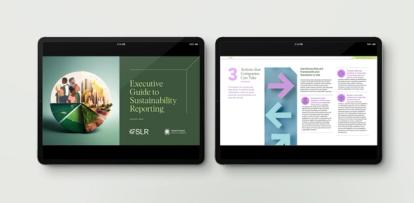
Navigating the Sustainability Reporting Landscape for Singapore: everything you need to know
- Post Date
- 04 August 2024
- Read Time
- 1 minute

Sustainability reporting has evolved from a voluntary exercise done by select industry-leading companies to a mainstream corporate practice driven by increasing regulations.
While these advancements enhance oversight and corporate responsibility, the proliferation of numerous sustainability standards and frameworks over the years has also posed challenges and confusion for report preparers and users. However, recent developments indicate a convergence in sustainability reporting approaches, offering hope to reduce what many organisations perceive as a cumbersome compliance task.
Our ESG Advisory experts have partnered with UN Global Compact Network Singapore to prepare an Executive Guide to Sustainability Reporting in Singapore. This helpful document provides an overview of the current landscape of sustainability reporting frameworks and standards, key implications for businesses and practical recommended actions to navigate this evolving context. It is our hope that business leaders gain a good understanding of how to approach and advance their companies’ sustainability reporting as a meaningful, forward-looking exercise that drives tangible change both internally and externally.

To gain an understanding of the sustainability reporting landscape and for practical recommended actions, download the guide.
Contact any of our team for further information.
Recent posts
-

-

Unlocking value through solar PV repowering: A focus on module replacement and DC/AC optimisation
by David Fernandez
View post -
